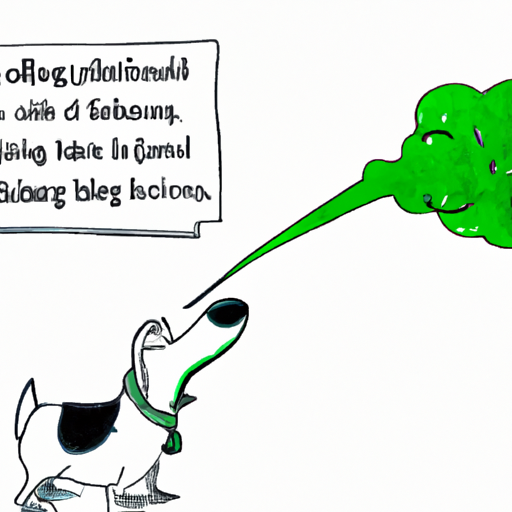Understanding Canine Oral Health
As a pet parent, you’ve probably noticed that your dog doesn’t always have the freshest breath. But have you ever wondered why that is? The answer lies in your dog’s oral health. Just like humans, dogs can develop dental issues that lead to bad breath.
Dogs use their mouths for everything from eating to playing, and all that activity can lead to a buildup of bacteria. This buildup can cause plaque and tartar, which in turn can lead to gingivitis and periodontal disease. These are the most common culprits behind your dog’s bad breath.
Diet and Digestive Issues
Your dog’s diet plays a pivotal role in their oral health.
- High-Quality Dog Food: Feeding your dog high-quality, balanced meals is crucial for their overall health, including dental health. Poor-quality food can lead to digestive issues, which can cause bad breath.
- Chew Toys and Dental Treats: These can help clean your dog’s teeth and freshen their breath.
- Avoid Human Food: Human food, especially spicy or aromatic foods, can cause bad breath in dogs.
In addition to diet, digestive issues could be causing your dog’s bad breath. Conditions like acid reflux or gastrointestinal problems can lead to foul-smelling breath. If you suspect this could be the case, it’s crucial to consult your vet.
Medical Conditions
Certain medical conditions can also cause bad breath in dogs. If your dog’s bad breath persists despite your best efforts to improve their oral hygiene and diet, it’s worth looking into potential underlying medical issues.
| Possible Medical Conditions | Symptoms |
|---|---|
| Kidney Disease | Increased thirst and urination, loss of appetite, weight loss |
| Diabetes | Excessive drinking and urination, increased appetite, weight loss |
| Liver Disease | Loss of appetite, yellowing of the eyes and skin, dark urine |
Dental Care Routine
As a responsible pet parent, you need to establish a regular dental care routine for your dog. Here’s how you can do it:
- Regular Brushing: Brush your dog’s teeth at least a few times a week using a canine toothbrush and toothpaste.
- Professional Cleaning: Schedule a professional dental cleaning with your vet at least once a year.
- Dental Chews and Toys: Provide your dog with dental chews and toys to help keep their teeth clean.
Coping with Canine Halitosis
In conclusion, there are various causes of bad breath in dogs, from diet and oral hygiene to underlying medical conditions. As a caregiver, it’s essential to pay attention to your dog’s oral health, ensuring they receive regular dental care and a balanced diet.
If your dog’s bad breath persists despite your efforts, don’t hesitate to consult your vet. Your dog’s bad breath could be a sign of a more serious underlying health issue.
Frequently Asked Questions
Q: How often should I brush my dog’s teeth?
A: Ideally, you should brush your dog’s teeth daily, but a few times a week can also be beneficial.
Q: Can I use human toothpaste to brush my dog’s teeth?
A: No, human toothpaste can be harmful to dogs. Always use a toothpaste formulated for dogs.
Q: When should I consult a vet about my dog’s bad breath?
A: If your dog’s bad breath persists despite your efforts to improve their oral hygiene and diet, it’s time to consult your vet.



